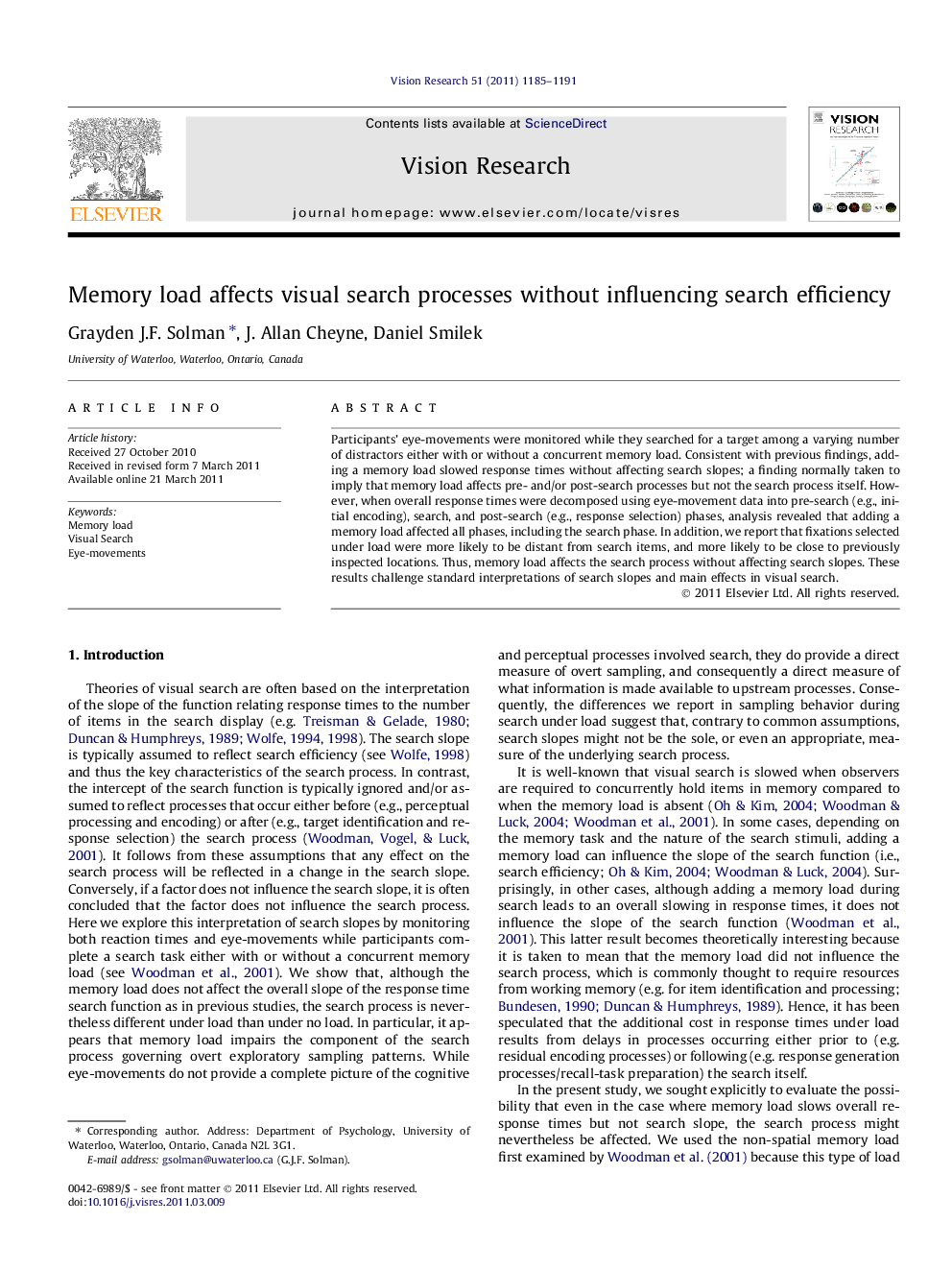| Article ID | Journal | Published Year | Pages | File Type |
|---|---|---|---|---|
| 4034289 | Vision Research | 2011 | 7 Pages |
Participants’ eye-movements were monitored while they searched for a target among a varying number of distractors either with or without a concurrent memory load. Consistent with previous findings, adding a memory load slowed response times without affecting search slopes; a finding normally taken to imply that memory load affects pre- and/or post-search processes but not the search process itself. However, when overall response times were decomposed using eye-movement data into pre-search (e.g., initial encoding), search, and post-search (e.g., response selection) phases, analysis revealed that adding a memory load affected all phases, including the search phase. In addition, we report that fixations selected under load were more likely to be distant from search items, and more likely to be close to previously inspected locations. Thus, memory load affects the search process without affecting search slopes. These results challenge standard interpretations of search slopes and main effects in visual search.
► In visual search, RT slopes are not exhaustive measures of the search process. ► Main effects in search are not necessarily accounted for by pre- and post-search processes. ► Non-spatial memory load during visual search alters the selection of fixation locations.
